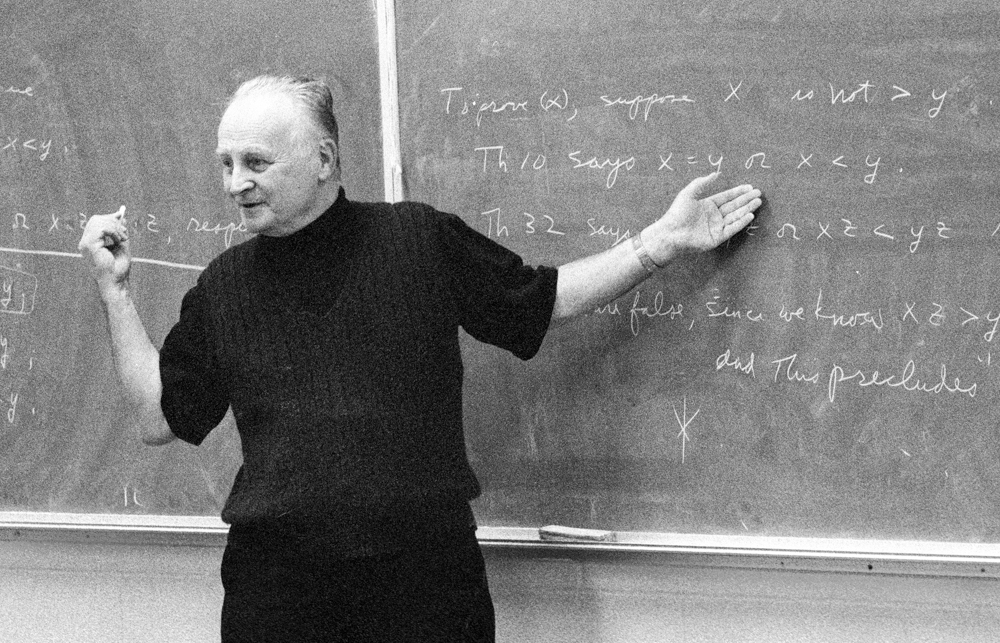
University News
Mathematician and longtime University faculty member Ralph Raimi dies at 92
January 13, 2017
After being named professor emeritus in 1995, Raimi became active in efforts to reform K–12 math education. Considered one of the top education experts in the country, he was a mathematics curriculum consultant to states across the country.


